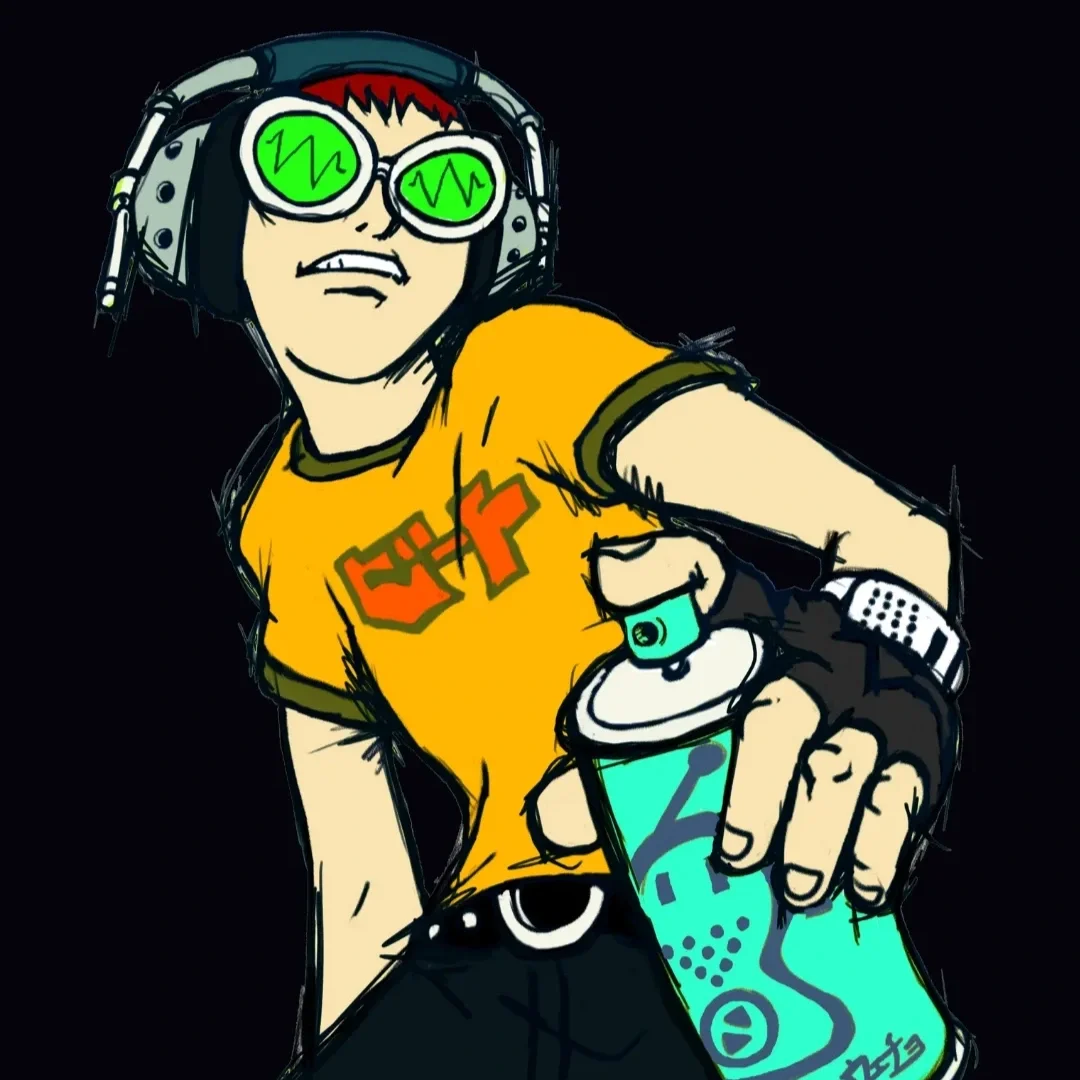What is Otaku Culture - The Obsessive Japanese Pop Culture Fandom Explained
Otaku Room│© Shiori Kawamoto
Otaku culture, often characterized by its intense devotion to manga, anime, and video games, has evolved significantly over the decades. Originating in Japan, this subculture has grown to become a global phenomenon, influencing media, technology, and social interactions worldwide. This comprehensive guide delves into the origins, evolution, characteristics, and global impact of Otaku culture, providing an in-depth look at its multifaceted nature.
In this article
Introducing Otaku
The Evolution
Characteristics
Media Panic in the 1990s
Societal Perceptions in Japan
Akihabara - The Mecca of Otaku Culture
Otaku Subcultures
Global Impact
Influence on Modern Entertainment
The Legacy of Otaku Culture
Introducing Otaku
The term “Otaku” is derived from a Japanese honorific, 御宅, meaning “you” or “your house.” It was first used in its modern slang form by humorist Nakamori Akio in 1983 to refer to obsessive anime fans in a derogatory manner. It has since come to describe individuals with obsessive interests, particularly in anime and manga. The word carries connotations of both devotion and social withdrawal, reflecting the deeply immersive nature of otaku hobbies. Otaku are often seen as socially awkward, preferring to engage with their interests through media and technology rather than traditional social interactions.
Otaku culture is more than just a collection of hobbies; it represents a significant social phenomenon that reflects broader cultural and technological trends. It has had a profound impact on the entertainment industry, influencing everything from film and television to fashion and technology. Understanding otaku culture provides valuable insights into the ways in which media and technology shape social interactions and cultural identities.
Hatsune Miku Cosplay│via Wikimedia Commons│© 雪笳
The Evolution of Otaku Culture
60s & 70s - Shaping the Pop Culture Scene
Otaku culture traces its roots back to the 1960s and 1970s, during a period of significant cultural and technological change in Japan. The first generation of otaku emerged around this time, influenced by popular sci-fi shows like “Battleship Yamato” and “Mobile Suit Gundam.” These early otaku were primarily interested in science fiction and special effects, often forming small, tight-knit communities to share their passions.
The 1970s also saw the rise of “anime” and “manga” as distinct and influential forms of entertainment. Pioneering works such as Osamu Tezuka’s “Astro Boy” and the aforementioned “Mobile Suit Gundam” laid the foundation for a burgeoning subculture centered around these media.
80s & 90s - The Rise of Otaku Culture
The 1980s marked the formal emergence of Otaku culture. This decade saw the development of specialized fan communities and the establishment of dedicated conventions like Comiket, which provided a space for fans to share their creations and engage with like-minded individuals.
The 1980s and 1990s marked a period of rapid growth and diversification for otaku culture. The advent of home computers and the internet allowed otaku to connect with each other more easily, facilitating the exchange of information and fan-created content. This era also saw the rise of “doujinshi” (self-published works) and “Comiket” (Comic Market), an event where fans could buy and sell their creations.
The second generation of otaku, those born around the 1970s, grew up with a more mature and diversified otaku culture. This period saw the introduction of iconic anime series such as “Neon Genesis Evangelion,” which not only captivated Japanese audiences but also garnered a significant international following. This era also marked the beginning of Japan’s dominance in the global animation market, with anime becoming a significant cultural export.
Comiket 2004│via Flickr│© Stormstill
00s - Global Expansion
The late 1990s and early 2000s marked a turning point, with Otaku culture gaining international recognition. The success of anime series like “Dragon Ball,” “Sailor Moon,” “Pokemon,” and “Naruto” brought Japanese pop culture to a global audience, transforming the image of Otaku culture into something more positive and widely accepted.
Characteristics of Otaku Culture
Obsessive Interests
Otaku are known for their intense dedication to specific hobbies, often investing significant time and money into their interests. These can include collecting manga, anime, video games, figurines, and other related merchandise. Otaku often participate in fan activities such as creating fan art, writing fan fiction, and attending conventions.
The dedication of otaku to their interests can be seen in various forms, such as meticulously organized collections, extensive knowledge about specific series or genres, and active participation in online communities and forums. This level of engagement is often driven by a deep personal connection to the content, which can provide a sense of identity and community.
Social Dynamics
Contrary to the stereotype of otaku as isolated loners, many otaku are highly sociable within their communities. They often form strong bonds with fellow fans, participating in online forums, social media groups, and face-to-face gatherings. However, their social interactions tend to be centered around their shared interests, which can lead to difficulties in forming connections outside of these circles.
Otaku Room│© Shiori Kawamoto
Otaku communities often function as support networks, providing a sense of belonging and acceptance that may be lacking in other areas of their lives. These communities can be found both online and offline, with events like Comiket and anime conventions serving as major social hubs for otaku from around the world.
Studies have shown that otaku individuals often exhibit traits such as introversion, social anxiety, and a preference for online communication. These characteristics can lead to a reliance on digital interactions and a tendency to withdraw from traditional social settings. However, this does not necessarily indicate a lack of social skills, but rather a different mode of social engagement.
The psychological profile of otaku can be complex, with some individuals finding solace and empowerment in their hobbies, while others may struggle with feelings of isolation and social disconnection. The diversity of experiences within the otaku community highlights the need for a nuanced understanding of this subculture.
Media Panic in the 1990s
Despite its growing popularity, otaku culture was not without controversy. The arrest of Tsutomu Miyazaki in 1989, a serial killer whose crimes were linked to his obsessive collection of slasher videos and pornographic manga, sparked a moral panic in Japan. The media quickly vilified otaku as dangerous and socially deviant, associating them with antisocial behavior and psychological issues.
This period of intense scrutiny and stigmatization was compounded by other incidents, such as the 1995 sarin gas attacks on the Tokyo subway by the Aum Shinrikyo cult. Many of the cult members were described as having otaku-like characteristics, further cementing the negative image of the subculture in the public eye. The term “otaku” became synonymous with social isolation and deviance, creating significant challenges for those who identified with or were labeled as part of this community.
Societal Perceptions in Japan
Over the past few decades, the perception of otaku culture has shifted significantly. While the initial reaction to otaku was largely negative, with associations to social deviance and psychological issues, the increasing popularity and economic impact of anime and manga have led to a more positive view. Influential figures in the industry, such as Toshio Okada and Takashi Murakami, have played key roles in redefining otaku culture as an important aspect of Japanese pop culture and national identity.
The shift in perception can also be attributed to the growing recognition of otaku as both consumers and creators. As the economic potential of the otaku market became apparent, businesses and media began to cater to their interests, further legitimizing the subculture. This commercial recognition has helped to normalize otaku culture and reduce the stigma associated with it.
The range of otaku interests has expanded greatly, encompassing not only traditional anime and manga but also areas such as idol culture (wota), Mecha enthusiasts, and more. This diversification has helped to broaden the appeal of otaku culture and attract a wider audience.
The emergence of new subgenres and specialized interests within the otaku community reflects the dynamic and evolving nature of the subculture. For example, the rise of “cosplay” (costume play) as a major hobby has brought together fans of various media to celebrate their favorite characters through elaborate costumes and performances.
Comiket 2004│via Flickr│© Stormstill
Akihabara - The Mecca of Otaku Culture
Akihabara, often referred to simply as “Akiba,” is a district in Tokyo, Japan, that has become synonymous with otaku culture. Known worldwide as a hub for electronics, anime, manga, and gaming, Akihabara attracts enthusiasts from all corners of the globe. This vibrant area is not just a shopping district but a cultural epicenter where the essence of otaku culture is both celebrated and commercialized.
Originally a district known for its post-war black markets, Akihabara transitioned into an electronics hub during the 1970s and 1980s. As consumer electronics and personal computers became more prevalent, Akihabara earned its nickname “Electric Town.” By the late 1980s and 1990s, with the rise of anime, manga, and video games, the district began to evolve into a haven for otaku, offering a wide range of specialized stores catering to these interests.
Today Akiba functions as a social hub where otaku culture thrives. It hosts numerous events and conventions that draw massive crowds, such as the Akihabara UDX events, which showcase the latest in anime, manga, and gaming. The district also features regular cosplay gatherings, where fans dress as their favorite characters and engage in photography sessions and social interactions.
Akihabara Electric Town
Otaku Subcultures
Otaku culture is diverse, encompassing various subcultures based on specific interests and hobbies. Here are some of the most prominent otaku niches, though many more exist.
Anime and Manga Otaku
These individuals are passionate fans of Japanese animated series (anime) and comics (manga). They often collect related merchandise, attend conventions, and engage in fan activities such as creating fan art or fan fiction.
Rei Ayanami
Gaming Otaku
Also known as gamers, these Otaku are devoted to video games, particularly those developed in Japan. This category includes various subgenres such as RPGs, fighting games, and visual novels.
Kaedehara Kazuha
Cosplay Otaku
Cosplay involves fans dressing up as their favorite characters from anime, manga, video games, or other media. Cosplayers often gather at conventions to showcase their intricate costumes and connect with other fans.
Yudachi Cosplay│via Wikimedia Commons│© Raita Futo
Vocaloid Otaku
Fans of Vocaloid software, particularly the virtual idol Hatsune Miku. They create music using Vocaloid voicebanks, participate in concerts, and produce fan art and animations.
Hatsune Miku Cosplay│via Wikimedia Commons│© Stefan Schubert
Idol Otaku
Known in Japan as Idol Otaku or “wota,” these fans are enthusiastic followers of Japanese pop idol groups. Their fandom activities range from attending live performances to collecting merchandise and participating in meet-and-greet events.
Others
Train Otaku (Densha Otaku): Individuals obsessed with trains, collecting model trains, and memorizing train schedules.
Military Otaku: Fans deeply interested in military hardware, history, and strategy, often enjoying military-themed games.
Global Impact
The international spread of otaku culture has led to significant cultural exchange between Japan and other countries. This exchange is evident in various forms of media, such as the adaptation of Japanese anime and manga into different languages, the creation of Western manga-inspired comics, and the incorporation of anime aesthetics into global fashion and art. This cross-cultural pollination has enriched both Japanese and global popular culture, creating a shared language of symbols and narratives that transcend national boundaries.
Moreover, the influence of otaku culture can be seen in the growing interest in Japanese language and cultural studies. Many international fans are motivated to learn Japanese and explore traditional Japanese culture as a result of their engagement with anime and manga. This cultural curiosity has fostered a greater appreciation for Japan’s rich cultural heritage and contemporary creativity.
International conventions and events have played a crucial role in the global expansion of otaku culture. These gatherings provide a space for fans to celebrate their shared interests, meet like-minded individuals, and engage with creators and industry professionals. Major conventions such as Anime Expo, Otakon, and Japan Expo attract tens of thousands of attendees, offering a variety of activities including panels, screenings, cosplay contests, and merchandise sales.
These events not only serve as social hubs but also as platforms for cultural exchange and industry networking. Creators and companies use conventions to unveil new projects, gauge audience reactions, and connect with fans on a personal level. This direct interaction helps to build a loyal and engaged fanbase, further solidifying the global influence of otaku culture.
Comic Con San Diego 2006 │via Flickr│© William Tung
Influence on Modern Entertainment
The influence of otaku culture on modern media and entertainment is undeniable. Many contemporary filmmakers, game developers, and artists cite anime and manga as major inspirations for their work. The distinctive visual style, storytelling techniques, and thematic elements of anime and manga have been adopted and adapted across various media, contributing to the global popularity of Japanese pop culture.
In addition, the success of otaku-related media has encouraged greater diversity and experimentation within the entertainment industry. Genres and themes that were once considered niche or unconventional have gained mainstream acceptance, thanks in part to the creative innovation driven by otaku culture. This openness to diverse narratives and artistic styles has enriched the global media landscape, offering audiences a wider array of content to enjoy.
Jujutsu Kaisen
Looking ahead, the future of otaku culture appears bright. The continued advancement of technology and the growing interconnectedness of global communities suggest that otaku culture will continue to thrive and evolve. As new generations of fans discover anime, manga, and related media, they will bring fresh perspectives and ideas, ensuring the vitality and dynamism of the subculture.
Moreover, the increasing recognition of otaku culture as a significant cultural and economic force will likely lead to further investment and innovation in the industry. Companies and creators will continue to explore new ways to engage with fans and expand the reach of otaku media, whether through cutting-edge technology, cross-media collaborations, or international partnerships.
The Legacy of Otaku Culture
Otaku culture, with its deep roots in Japanese society, has grown from a marginalized subculture to a global phenomenon. Its evolution reflects broader societal changes and highlights the impact of media and technology on social interactions. From its origins in the 1960s and 1970s to its mainstream acceptance and global spread, otaku culture has significantly influenced both Japanese and global popular culture.
Key characteristics of otaku culture include obsessive interests, unique social dynamics, and distinct psychological aspects. Over time, the perception of otaku has shifted from stigmatization to acceptance, driven by the diversification of interests and the economic impact of the subculture. The global expansion of otaku culture has facilitated cultural exchange, enriched international media, and fostered a sense of community among fans worldwide.
© Korokai
Otaku culture serves as a powerful example of how niche interests can grow into influential cultural movements. Its impact on media, technology, and social interactions underscores the importance of understanding and appreciating diverse cultural expressions. As otaku culture continues to evolve and adapt to new technologies and global trends, it will undoubtedly remain a vibrant and significant part of the cultural landscape.




















Discover how Vocaloid transformed music with anime-inspired digital characters.